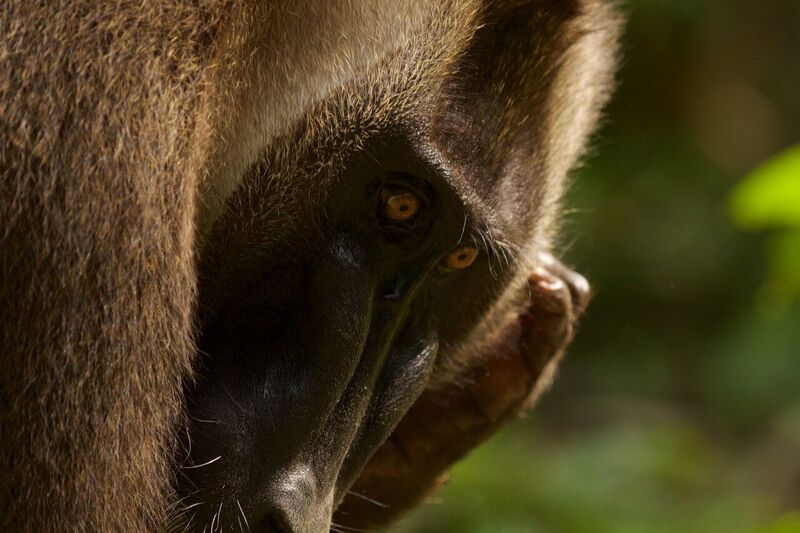From Adanna Nnamani, Abuja
The United Nations (UN) has declared that Nigerian wildlife and forests are under severe threat with vast amounts of rare tropical woods being illegally extracted and smuggled out of the country.
The UN also disclosed that the country has over the past decade evolved into a primary transit hub for the trafficking of wildlife products, including ivory, pangolin scales and other protected species.
This is as the Federal Ministry of Environmental launched the National Strategy to Combat Wildlife and Forest Crime in Nigeria 222-2026 in Abuja on Monday.
County Representative, UN’s Office on Drug and Crime (UNODC), Mr Oliver Stolpe stated that UNODC’s 2020 Wildlife Crime Report found that despite Nigeria being home to less than 0.1% of Africa’s elephant population, 23% of all elephant tusks seized globally between 2015 and 2019 had been smuggled through Nigerian ports.
He also noted that despite the ban on legal international trade of Nigerian rosewood, locally known as ‘kosso’, the country has continued to be one of the largest exporters of kosso with over 50% of the exported product from Africa traced to Nigeria.
The UN representative commended the federal government for introducing the National Strategy to Combat Wildlife and Forest Crime describing it as ‘exemplary’. He pledged the organisation’s commitment to see to the execution of the plan while urging the ministry to move quickly towards formalising its coordination and implementation framework.
‘Nigeria over the past decade has evolved into a primary transit hub for the trafficking of wildlife products, including ivory, pangolin scales and other protected species. At the same time, Nigerian wildlife and forests are under severe threat, with immense amounts of rare tropical woods being illegally extracted and smuggled out of the country,’ he said.
‘UNODC’s 2020 Wildlife Crime Report found that despite Nigeria being home to less than 0.1% of Africa’s elephant population, 23% of all elephant tusks seized globally between 2015 and 2019 had been smuggled through Nigerian ports.
‘Similarly, we have seen Nigeria evolve into a major export hub for pangolin scales, with close to 60% of all seizures having either originated or been trafficked through Nigeria.
‘Equally concerning is the illicit extraction and export of African Rosewood, locally known as “kosso”. Despite the suspension of legal international trade of Nigerian rosewood by the CITES Standing Committee in 2018, illegal logging has continued. The UNODC 2020 World Wildlife Crime Report notes that between 2015 and 2018, there was a considerable spike in the volume of kosso exported from Nigeria, with the country accounting for the lion’s share of kosso exports from Africa. In 2017 alone, over 50% of kosso exports from Africa were traced to Nigeria.
‘The strategy is exemplary not only in content and focus but also in the highly participatory way it was developed.
‘Allow me also to urge the Ministry to move quickly towards formalising the coordination and implementation framework of the strategy.’
Earlier while giving his keynote address, the Minister for Environment, Abdullahihassan Mohammed, said the fight against illegal trade in endangered species calls for collective action from across the states and nations.
Muhammadu disclosed that efforts were being intensified by the ministry in various areas to address the menace.
According to him, some of the steps being taken include; collaboration with numerous Partners from the line Ministries and Agencies, exploration of diplomatic channels by engaging the embassies of countries noted as destinations for the affected products to assuage the demand pressure, as well as intensifying advocacy campaign to promote interest in the protection and conservation of wildlife and forest resources while discouraging illegal trade in them among others.
“A request has already been sent to the Inspector General of Police (IGP) on the need to set up Wildlife Crime Unit within the Force as a specialised unit dedicated to wildlife and related crime, adding that awareness and advocacy campaigns are also being intensified and expanded to promote interest in the protection and conservation of wildlife and forest resources while discouraging illegal trade in them among others.
‘The development of the Nigerian National strategy on wildlife and forest crime is critical and timely to the demand of the international community seeking a well-structured guideline and punishment for wildlife traffickers and other related forest crime perpetrators. The goal is to achieve a Nigeria free of wildlife and forest crime which requires enhancing institutional capacity, strengthening the legal frameworks, increasing collaboration and removing crime enablers, raising awareness of wildlife crime and designing alternative means of livelihood for dwellers of local communities,’ he stated.

